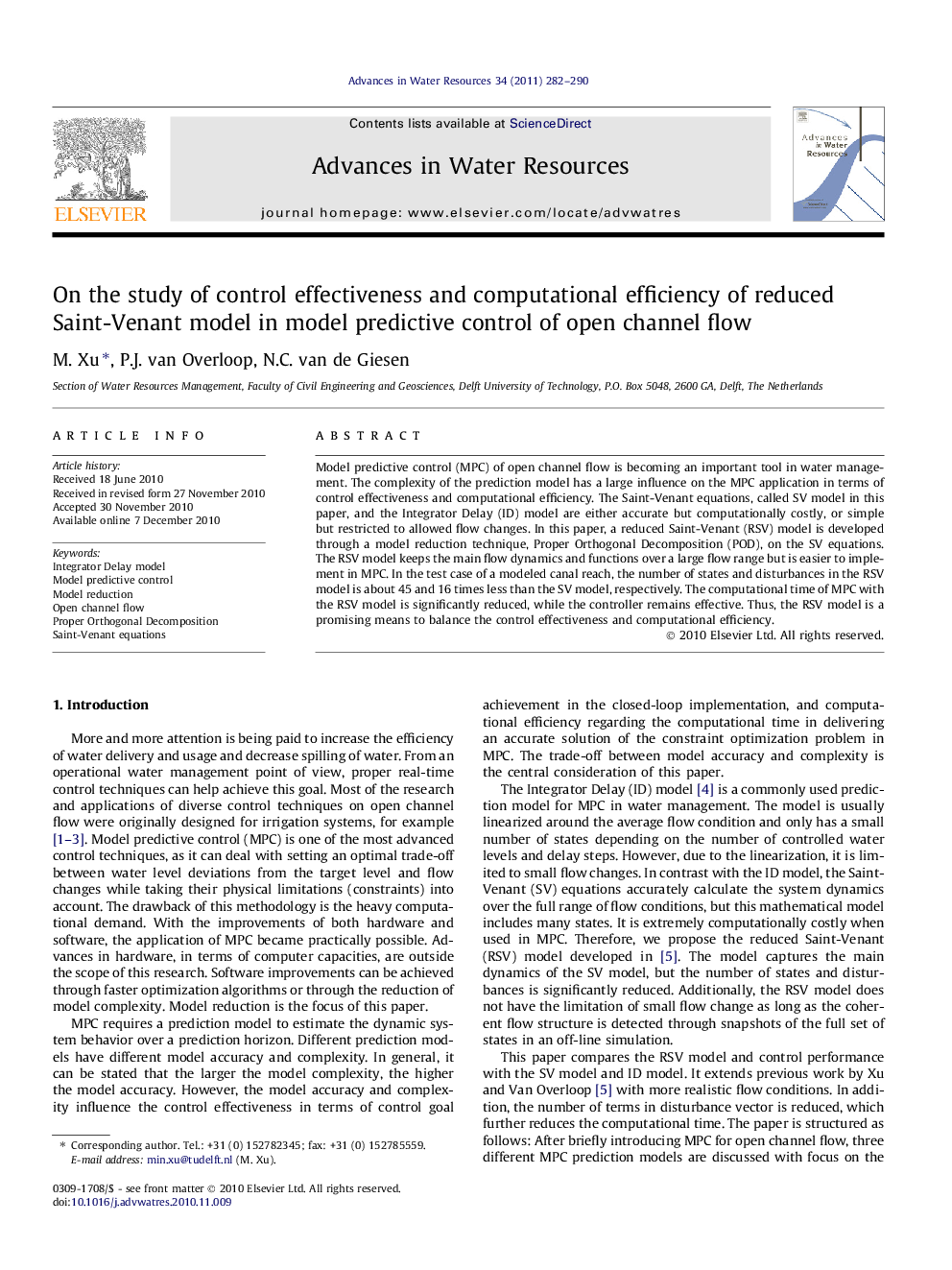| Article ID | Journal | Published Year | Pages | File Type |
|---|---|---|---|---|
| 4526290 | Advances in Water Resources | 2011 | 9 Pages |
Model predictive control (MPC) of open channel flow is becoming an important tool in water management. The complexity of the prediction model has a large influence on the MPC application in terms of control effectiveness and computational efficiency. The Saint-Venant equations, called SV model in this paper, and the Integrator Delay (ID) model are either accurate but computationally costly, or simple but restricted to allowed flow changes. In this paper, a reduced Saint-Venant (RSV) model is developed through a model reduction technique, Proper Orthogonal Decomposition (POD), on the SV equations. The RSV model keeps the main flow dynamics and functions over a large flow range but is easier to implement in MPC. In the test case of a modeled canal reach, the number of states and disturbances in the RSV model is about 45 and 16 times less than the SV model, respectively. The computational time of MPC with the RSV model is significantly reduced, while the controller remains effective. Thus, the RSV model is a promising means to balance the control effectiveness and computational efficiency.
Research highlights► Model reduction technique (POD) is applicable in MPC of open channel flow. ► RSV model is accurate and efficient in MPC, and can keep control effectiveness. ► Most of control process in MPC with SV model is to buildup large system matrices. ► Optimization time is linked to the number of control inputs and prediction steps.
